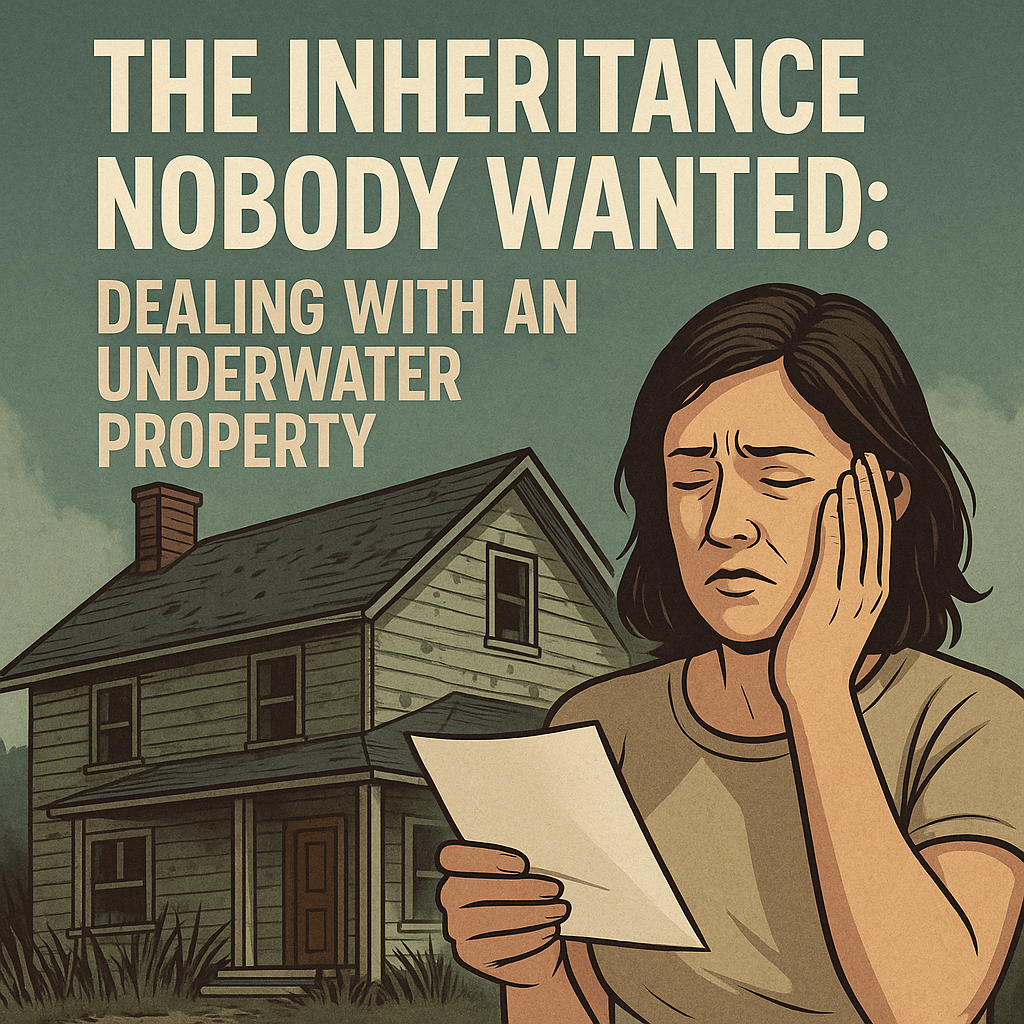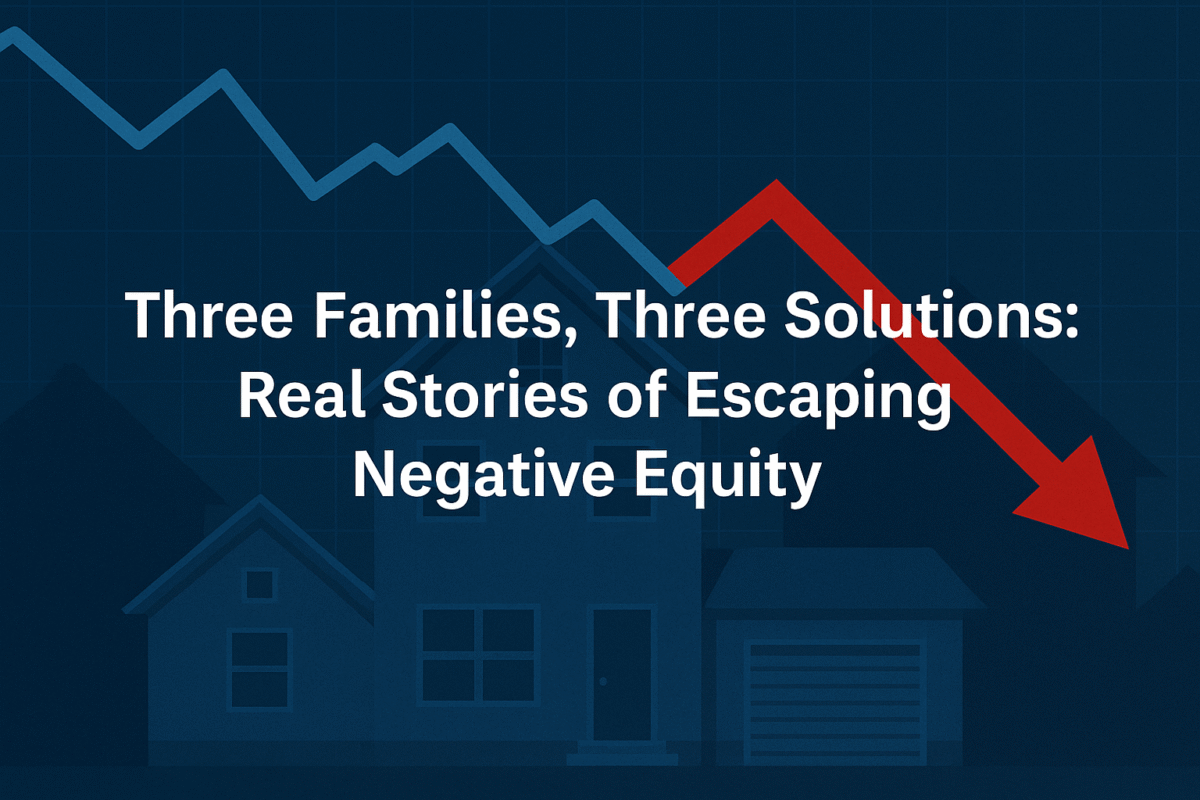When David Martinez received the call from his father’s attorney, he expected to hear about a modest inheritance that might help with his daughter’s college fund. Instead, he learned he’d inherited a financial time bomb: his father’s Denver home with a $380,000 mortgage balance on a property now worth $340,000.
“Congratulations,” the attorney said, handing him the keys. “You’re now the proud owner of a house that costs you $2,800 every month.”
David’s story echoes through living rooms across the Denver metro area. Adult children who thought they were receiving their parents’ greatest gift discover they’ve inherited their biggest burden instead.
When “Lucky You” Becomes “I’m Sorry”
The house in Thornton had been David’s childhood home. His father, Roberto, had purchased it in 1998 for $185,000. Over the years, Roberto refinanced several times – once for home improvements, once to help David through college, and finally during the 2020 refinance boom to get a lower rate.
By the time Roberto passed away from cancer last spring, the home carried a $380,000 mortgage balance. Recent sales in the neighborhood suggested the house might appraise for $340,000 – maybe $350,000 if David invested $15,000 in updates first.
“Everyone kept saying how lucky I was to inherit a house in this market,” David remembers. “Nobody mentioned I was inheriting negative equity and a payment I couldn’t afford.”
The cruel math of underwater inheritance hit him immediately:
- Monthly mortgage payment: $2,100
- Property taxes: $420 per month
- Insurance: $180 per month
- Basic maintenance: $100+ per month
- Total monthly cost: $2,800+
David’s take-home pay as a school teacher couldn’t absorb an extra $2,800 monthly expense, especially with his own mortgage and family expenses.
The Options That Weren’t Really Options
David spent three sleepless weeks researching his choices, each one more discouraging than the last.
Option 1: Keep the House and Rent It The Thornton rental market suggested he might get $2,200-2,400 monthly rent. After property management fees, maintenance reserves, and vacancy allowance, he’d lose $500-700 every month. As a teacher with limited savings, subsidizing a rental property wasn’t realistic.
Option 2: Sell It Traditionally Real estate agents explained he’d need to bring $40,000-50,000 to closing to cover the mortgage shortfall, plus realtor commissions, and closing costs. David didn’t have that kind of cash, and banks wouldn’t give him a loan to pay for the privilege of selling an inherited house.
Option 3: Walk Away His attorney mentioned he could simply stop making payments and let the house go to foreclosure. This would destroy the credit his father had worked decades to build and seemed like a betrayal of Roberto’s memory.
Option 4: Short Sale A short sale might work if the bank agreed to accept less than the mortgage balance. But short sales in Colorado typically take 4-6 months, during which David would continue paying $2,800 monthly. Even if approved, he’d still owe money to the bank after closing.
The Weight of Inherited Debt
“I felt trapped by Dad’s final gift,” David explains. “I couldn’t afford to keep it, couldn’t afford to sell it, and couldn’t bear to let it go to foreclosure. I was angry at him for leaving me this mess, then guilty for being angry at someone who’d just died of cancer.”
David’s wife, Carmen, watched him lose weight and sleep as the inherited house consumed their family’s financial future. Their own mortgage, car payments, and living expenses stretched their budget tight before adding $2,800 monthly for David’s childhood home.
Three months after the inheritance, David was using credit cards to make the Thornton house payment. He realized he was heading toward destroying his own family’s financial stability to preserve his father’s house.
When Traditional Real Estate Failed
David contacted six different real estate agents about listing his father’s house. Each conversation followed the same disappointing pattern:
“How much do you owe on it?” “$380,000.” “And you’re hoping to get?” “Enough to pay off the mortgage.” “I’m sorry, but in this condition, in this neighborhood… you’re looking at maybe $340,000. You’d need to bring about $50,000 to closing.”
One agent suggested cosmetic improvements to boost the value. But David calculated that spending $20,000 on updates might increase the value by $15,000 – making his financial hole even deeper.
Another agent recommended waiting for the market to recover. “Maybe in 18 months,” she said optimistically. David couldn’t afford 18 more months of $2,800 payments.
A Different Kind of Solution
Four months into his nightmare, David’s neighbor mentioned seeing a “We Buy Houses” sign in the area. Desperate and running out of credit card room, David called SellFastDenver.
“I expected another disappointment,” David admits. “I figured they’d offer me $200,000 and tell me to bring $180,000 to closing.”
Instead, SellFastDenver proposed something David had never heard of: seller financing. Rather than buying the house with cash, they would take over the existing mortgage and pay David monthly for his equity position.
The structure worked like this:
- SellFastDenver took over all mortgage payments, taxes, and insurance immediately
- They assumed responsibility for all maintenance and tenant management
- David received $800 monthly for 15 years as his equity share
- If they sold or refinanced the property for more than the mortgage balance, David would share in any profits above $380,000
“Instead of losing $2,800 every month, I started receiving $800 every month,” David explains. “They turned my father’s burden into my family’s blessing.”
The Legal Framework
David worked with a real estate attorney to structure the seller financing agreement properly. The attorney ensured:
- David’s interests were protected throughout the 15-year term
- Clear procedures existed if SellFastDenver ever defaulted on the mortgage
- All tax implications were properly documented
- The agreement complied with Colorado inheritance and real estate laws
The title company handled the closing, ensuring all documentation was properly recorded and David’s ownership interest was legally protected.
Life After the Solution
Six months later, David’s family has regained their financial stability. The monthly income from his father’s house helps with his daughter’s college savings, and David sleeps through the night again.
“I learned that inheritance doesn’t always mean wealth,” David reflects. “Sometimes it means debt. But I also learned that creative people can find solutions when traditional real estate can’t.”
Carmen adds, “We thought David’s dad had left us a problem. It turns out he left us an opportunity – we just needed the right people to help us see it.”
If You’ve Inherited an Underwater Property
David’s story isn’t unique. Across Colorado, adult children inherit properties that cost more than they’re worth. If you’re facing a similar situation, remember:
- You have options beyond keeping, selling, or walking away
- Creative financing can transform inherited debt into inherited income
- Time matters – the sooner you act, the more options you’ll have
- Professional legal guidance protects your interests
Your Next Step
If you’ve inherited an underwater property in the Denver area, don’t let it become your family’s financial burden. David Martinez found a solution that worked – and you can too.
At SellFastDenver, we specialize in creative financing solutions for inherited properties. We understand the emotional and financial challenges of unwanted real estate inheritance, and we’ve helped dozens of Colorado families transform inherited burdens into inherited blessings.
Ready to explore your options? Contact SellFastDenver today:
- Call: (720) 458-4722
- Text: (720) 458-4722
- Email: info@sellfastdenver.com
- Website: www.sellfastdenver.com
Get your free, no-obligation consultation. We’ll review your inherited property situation and explain all available options – including creative financing solutions that can turn your burden into monthly income.
Remember: Every inheritance situation is unique. We’ll connect you with qualified real estate attorneys and title companies to ensure any solution we develop protects your interests and meets all legal requirements.
Don’t let an inherited property destroy your family’s financial future. Call SellFastDenver today and discover how your father’s house can become your family’s monthly income instead of your monthly expense.
Real estate transactions involving inherited properties and creative financing should always be reviewed by qualified legal and financial professionals.



